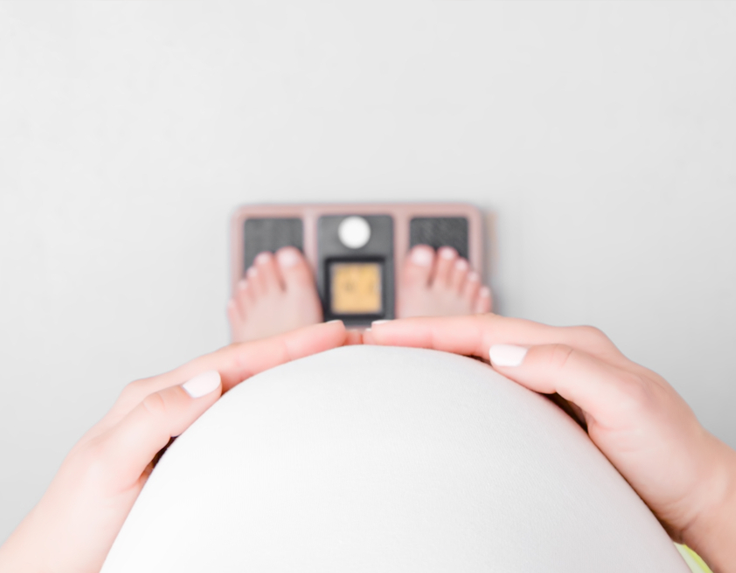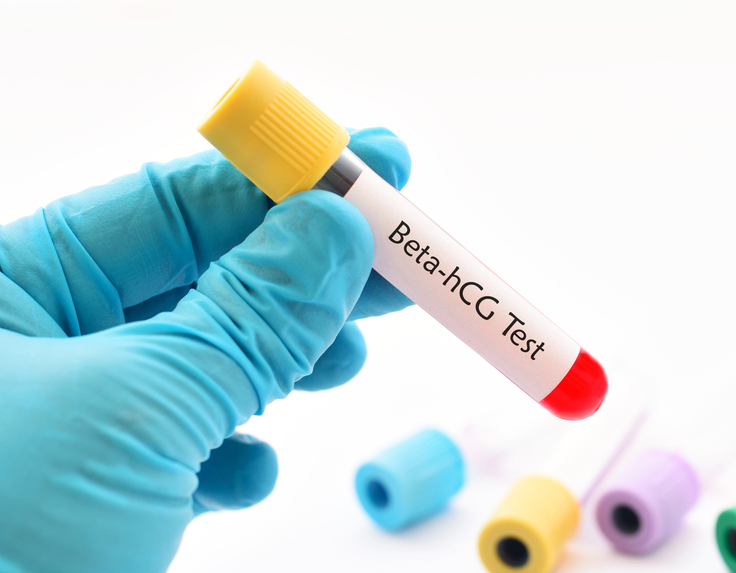The anticipation and excitement surrounding the arrival of a new life bring unparalleled joy and transformative changes to the lives of soon-to-be parents. To navigate this monumental occasion with confidence, preparation, and a sense of empowerment, the Prega News Guide offers essential insights and practical advice to help you get ready for the big day.

In this comprehensive guide, we’ll delve into every aspect of preparing for childbirth, from creating a supportive birth plan to understanding the physical and emotional changes during labor. Whether you’re a first-time parent seeking clarity or an experienced one looking to refresh your knowledge, our guide is designed to provide you with the information, tools, and reassurance needed to approach the big day with readiness and calm.
Preparing emotionally for pregnancy
- Reflection and Communication:
Take the time to reflect on your feelings and expectations surrounding pregnancy and parenthood. Engage in open and honest communication with your partner about your emotions, fears, and aspirations. - Educate Yourself:
Knowledge is a powerful ally in emotional preparation. Educate yourself about the physical and emotional changes that come with pregnancy, childbirth, and postpartum experiences. - Build a Support System:
Surround yourself with a supportive network of friends, family, and healthcare professionals. Establishing a robust support system provides a sense of security and reassurance, knowing that you have individuals to turn to for guidance, encouragement, and empathy. - Mindfulness and Relaxation Techniques:
Incorporate mindfulness and relaxation practices into your routine to manage stress and anxiety. Techniques such as deep breathing, meditation, and prenatal yoga can help cultivate a calm and centered mindset, promoting emotional well-being throughout the pregnancy journey. - Address Fears and Concerns:
Confronting and addressing any fears or concerns you may have about pregnancy, childbirth, or parenthood is essential. Seeking professional guidance through counseling or support groups can be immensely beneficial in navigating and overcoming emotional challenges. - Celebrate Milestones:
Acknowledge and celebrate each milestone in your pregnancy journey. From the first ultrasound to feeling the baby’s first kicks, these moments are not only physical but emotional milestones as well. - Create a Birth Plan:
Collaborate with your healthcare provider to create a birth plan that aligns with your emotional preferences and desires for the birthing experience. - Embrace Change and Flexibility:
Recognize that emotional preparedness is an ongoing process that involves adapting to changes and unexpected developments. Embrace the journey with flexibility, allowing yourself the space to grow emotionally as you transition into parenthood.
Preparing emotionally for pregnancy is a profoundly personal and unique experience. By nurturing your emotional well-being through reflection, education, support, and mindfulness, you lay the groundwork for a more enriching and positive pregnancy journey.
Educating yourself about pregnancy and childbirth
An essential aspect of navigating this journey with confidence and informed decision-making is the commitment to educate yourself about the various facets of pregnancy and childbirth.

- Prenatal Education Classes: Consider enrolling in prenatal education classes offered by healthcare providers, hospitals, or community organizations. These classes cover a range of topics, including the stages of pregnancy, labor and delivery, pain management options, and postpartum care. Prenatal classes often provide a supportive environment for questions and discussions, fostering a sense of community among expectant parents.
- Read Widely: Explore a variety of reliable sources to broaden your understanding of pregnancy and childbirth. Books, reputable websites, and articles authored by healthcare professionals can offer insights into the physical and emotional changes, nutritional needs, and potential complications associated with pregnancy. A well-rounded knowledge base enhances your ability to make informed decisions.
- Engage with Healthcare Providers: Establish open communication with your healthcare team. Regularly attending prenatal appointments and discussing your questions, concerns, and preferences with your healthcare provider fosters a collaborative approach to your care. Your provider can offer personalized guidance based on your health, lifestyle, and specific needs.
- Attend Workshops and Webinars: Participate in workshops or webinars that focus on specific aspects of pregnancy and childbirth. These may include breastfeeding techniques, childbirth preparation, or stress management during pregnancy. Such interactive sessions provide valuable insights and practical tips from experts in the field.
- Connect with Supportive Communities: Join online forums or local support groups where you can connect with other expectant parents. Sharing experiences, asking questions, and receiving advice from those who have gone through similar journeys can provide a sense of community and reassurance.
- Understand Your Birth Options: Educate yourself about various birthing options, including hospital births, birthing centers, and home births. Knowing your options allows you to make choices aligned with your preferences, ensuring a more personalized and positive birthing experience.
- Explore Postpartum Care: Extend your knowledge beyond pregnancy to postpartum care. Understanding the physical and emotional changes that occur after childbirth, as well as learning about breastfeeding, newborn care, and postpartum mental health, prepares you for the initial weeks and months of parenthood.
- Ask Questions and Seek Clarification: Do not hesitate to ask questions and seek clarification from healthcare professionals or educators. Being proactive in seeking information empowers you to actively participate in your care and make well-informed decisions that align with your values and goals.
By arming yourself with knowledge, engaging with supportive communities, and actively participating in your healthcare, you lay the groundwork for informed decision-making and a more enriching experience.
Financial Planning for Parenthood

- Assess Your Current Finances:
Begin by evaluating your current financial situation. Take stock of your income, expenses, debts, and savings. - Create a Realistic Budget:
Develop a comprehensive budget that encompasses your monthly expenses, including housing, utilities, groceries, healthcare, and other necessities. Factor in potential new expenses associated with parenthood, such as diapers, formula, childcare, and medical costs. - Emergency Fund:
Establish or reinforce an emergency fund. Parenthood often comes with unexpected expenses, and having a financial safety net can provide peace of mind during uncertain times. Aim to set aside three to six months’ worth of living expenses in a readily accessible savings account. - Health Insurance Review:
Review your health insurance coverage to ensure it aligns with your family’s needs. Understand maternity and pediatric coverage, co-pays, and deductibles. Confirm that your chosen healthcare plan offers comprehensive coverage for prenatal care, delivery, and postpartum needs. - Life Insurance:
Consider obtaining or updating life insurance policies. Life insurance provides financial protection for your family in the event of unforeseen circumstances. Evaluate the coverage needed to secure your family’s future and explore options that fit your budget. - Savings for Education:
Explore options for saving for your child’s education. Establishing savings plan or other education-focused savings accounts early on allows you to contribute gradually over time, potentially easing the financial burden of future educational expenses. - Adjusting Your Retirement Savings:
While prioritizing immediate needs, continue to contribute to your retirement savings. Adjust your retirement plan as needed to accommodate new expenses and financial goals. Striking a balance between short-term and long-term financial priorities is key. - Explore Childcare Options:
Research and budget for childcare options that align with your family’s needs. Whether you choose daycare, a nanny, or family-based care, understanding the associated costs helps you plan and allocate resources accordingly. - Regularly Review and Adjust:
Financial planning for parenthood is an ongoing process. Regularly review your budget, assess your financial goals, and make adjustments as needed. As your family grows and circumstances change, adapting your financial plan ensures continued stability.
Financial planning for parenthood is a proactive and empowering process that lays the groundwork for a stable and secure family future. By assessing your current finances, creating a realistic budget, and strategically managing resources, you can navigate the financial aspects of parenthood with confidence. Now, let’s address some common questions that often arise when considering pregnancy tests, specifically focusing on the usage of Prega News.
How to use Prega News step by step?
Prega News is a commonly used home pregnancy test kit. To use it effectively, follow these general steps:
Read the instructions provided with the kit thoroughly.
Collect a urine sample in a clean, dry container.
Use the provided dropper to place a few drops of urine on the test strip.
Wait for the recommended time (usually a few minutes) for the results to appear.
How many days should I wait to use Prega News?
For accurate results, it’s advisable to wait until you’ve missed your period before using Prega News. Testing too early may yield false-negative results, as the test may not be sensitive enough to detect the pregnancy hormone (hCG) at very early stages.
Should I test Prega News in the morning or night?
While it’s generally recommended to use the first-morning urine for pregnancy tests, Prega News and similar kits are designed to be effective at any time of the day. However, using the first-morning urine may contain a higher concentration of hCG, increasing the test’s sensitivity.
Which time is best for a pregnancy test?
The ideal time for a pregnancy test is in the morning, as the concentration of hCG is often higher in the first-morning urine. However, if testing later in the day, ensure that you’ve avoided excessive fluid intake for at least a few hours to prevent dilution of the hormone.











































